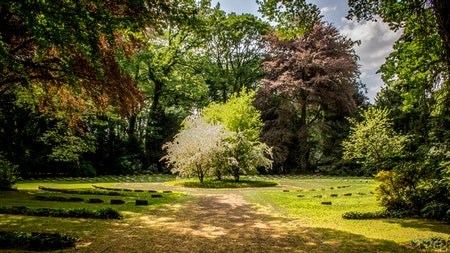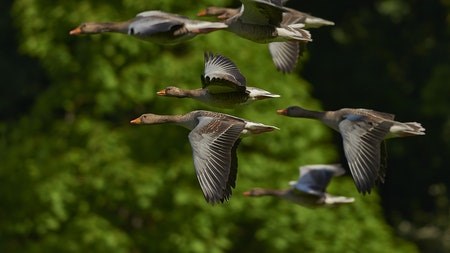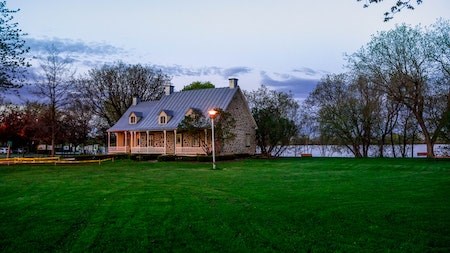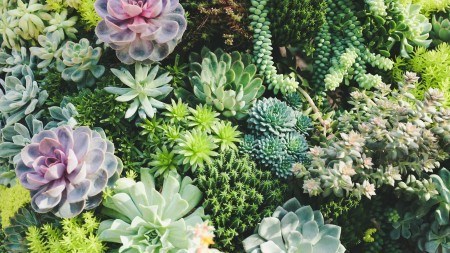Gardening is easy - or, at least, it should be. Summer is here, and the temperature is steadily rising; therefore, it’s time to get gardening. There is no better time to be outdoors surrounded by nature than during the long hot days of summer.
Here are some tips from garden centres around South Africa, including Stodels in the Western Cape, Plantlands - with branches in Pretoria - and gardening directory Gardenwise.
It’s time to get your summer gardening gloves on.
Colour
You can fill your garden with a rainbow of colours for a wild garden look. Plant big blocks of one colour in each flower bed to make an impact. There are endless options when it comes to flowering annuals - with Dahlias and Impatiens at their best and Marigolds in shades of orange, red and yellow.
Leonotis are robust, fast-growing indigenous shrubs with brilliant orange or yellow flowers. There are about seven species in southern Africa. Indigenous wild Irises are tough, low maintenance, water wise and easy-to-grow plants.
Sun-loving summer perennials include: Agapanthus, Angelonia, Lavandula, Penstemon, Salvia, Verbena. Indigenous options include Bacopa, Coreopsis, Diascia, Felicia Amelloides and Nemesia.
Summer perennials for shade include: Indigenous Agapanthus Dwarf Blue and Zantedeschia Aethiopica (Arum Lily). Other options include Aquilegia and Fuchsia.
Some summer annuals that love the sun are: Alyssum, Antirrhinum (Snapdragon), Chrysanthemum, Dahlia, Marigold, Salvia and Zinnia.
Shade-loving summer annuals include Begonia, Foxglove, Impatiens and Viola.
Heat-tolerant flowering plants that love the sun include: Lantana, Lemon Verbena, Cosmos, Geranium, Salvia, and Sedum.
Full sun annuals that bloom all summer are: Marigolds, Petunias, Lisianthus, Zinnias, Pentas, Poppies, and Sweet Alyssum.
Lawns
To help keep your lawn looking great in summer, you need to ensure it gets enough water. Watering your grass often will stop it from going crusty and brittle to the touch. Instead of watering for short periods daily, it’s best to water thoroughly once or twice a week. Deep watering encourages roots to grow deeper, and they will use less water in the long run.
It would be best if you also mowed at regular intervals to stimulate growth and keep the lawn looking neat. When cutting your grass, avoid cutting the grass too short - only cut off a third of the length. It's best to keep your mower blades sharp for a clean cut.
And remember to feed your lawn with an excellent organic fertiliser that will provide all the nutrients needed to keep it healthy and attractive.
Neat
Mowing the lawn regularly is essential. But to give your garden an instant lift, you need to create clean lines between lawns and flower beds. An easy and effective way is to position bricks or wooden poles to create a low maintenance border around each bed.
Neaten up pathways by trimming back encroaching grass and removing errant weeds.
Mulching the flower beds is another way to neaten the appearance of your garden - and discourage unwanted weeds.
Be water wise
A key to creating a beautiful summer garden is knowing when to water.
Watering during the day while the sun is at its hottest is a waste. Most of the water will evaporate, depriving the plants of moisture. Instead, water in the early morning or late evening so that your plants can soak up all they need.
Use drip irrigation where possible - it saves a lot of water.
Choose plants with hardy root systems, for example, perennials and heat resistant plants with extensive root systems.
Mulch beds with organic matter. This will help retain moisture and nutrients and suppress weeds. Choose an organic mulch, like bark, straw, or shredded leaves for a more natural look. These are also beneficial for flower beds as they decompose, releasing valuable nutrients into the soil.
Stay cool
Beat the heat by creating a few shaded spots for your outdoor furniture. For example, planting trees is an attractive and natural way to cool down your garden. Alternatively, you can erect an umbrella or an awning for relief from the sun.
A water feature or fountain in the garden will have a soothing and cooling effect – and will attract birds and other small animals.
The guidelines listed above, if well implemented, will assist you in achieving an attractive garden for memorable summer days.
Read more here.




